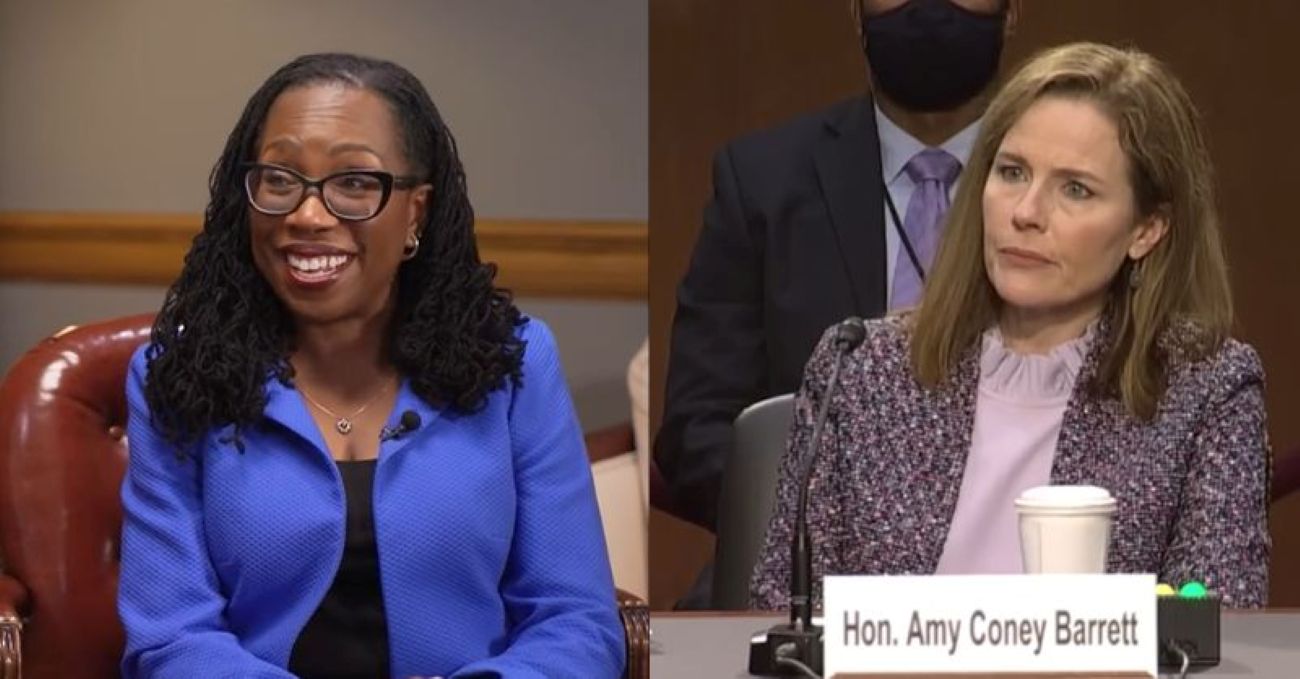


Associate Justice Ketanji Brown Jackson has never been one to shy away from engaging in left-wing political activism while on the bench. And now, it appears some of her Supreme Court colleagues are growing tired of it.
In its Friday ruling nuking lower courts’ nationwide injunctions against President Trump’s birthright citizenship order, the high court’s majority took a verbal flamethrower to Jackson’s dissenting opinion. As if she were echoing the writing style of legacy media hacktivists, the wannabe Broadway star — who “struggl[es] to understand” a lot of issues that come before the Court — dramatically declared that the majority’s “decision to permit the Executive to violate the Constitution with respect to anyone who has not yet sued is an existential threat to the rule of law.”
Writing for the majority, Associate Justice Amy Coney Barrett did not mince words when criticizing the lack of legal rationale behind the Biden appointee’s emotionally-charged dissent.
While noting how the principal dissent authored by Associate Justice Sonia Sotomayor “focuses on conventional legal terrain, like the Judiciary Act of 1789 and our cases on equity,” Barrett highlighted how Jackson’s dissent “chooses a startling line of attack that is tethered neither to these sources nor, frankly, to any doctrine whatsoever.” More specifically, she underscored how her Democrat-appointed colleague’s expressed views on the power of courts go beyond those of judicial supremacists — those who believe the judiciary is superior to the other branches of government.
“Waving away attention to the limits on judicial power as a ‘mind-numbingly technical query,’ post, at 3 (dissenting opinion), [Jackson] offers a vision of the judicial role that would make even the most ardent defender of judicial supremacy blush. In her telling, the fundamental role of courts is to ‘order everyone (including the Executive) to follow the law—full stop.'”
In continuing her assessment of Jackson’s “extreme” argument on the power and scope of lower courts’ nationwide injunctions, Barrett noted how the Court’s most junior justice “appears to believe that the reasoning behind any court order demands ‘universal adherence,’ at least where the Executive is concerned.” After underscoring her judicial supremacist views, Barrett excoriated Jackson for ignoring basic separation of powers and the limits placed upon the judiciary.
“We will not dwell on JUSTICE JACKSON’s argument, which is at odds with more than two centuries’ worth of precedent, not to mention the Constitution itself. We observe only this: JUSTICE JACKSON decries an imperial Executive while embracing an imperial Judiciary.“
While agreeing that the executive has an obligation to follow the law, Barrett chastised Jackson for “skip[ping] over” the fact that the judiciary must do so as well, and that separation of powers must be upheld.
“JUSTICE JACKSON would do well to heed her own admonition: ‘[E]veryone, from the President on down, is bound by law.’ … That goes for judges too.”
Shawn Fleetwood is a staff writer for The Federalist and a graduate of the University of Mary Washington. He previously served as a state content writer for Convention of States Action and his work has been featured in numerous outlets, including RealClearPolitics, RealClearHealth, and Conservative Review. Follow him on Twitter @ShawnFleetwood
